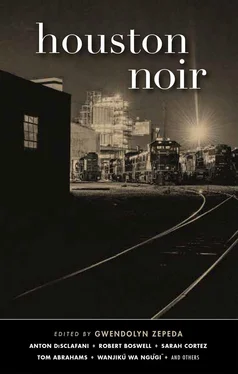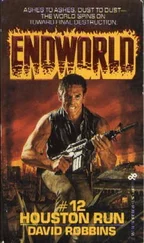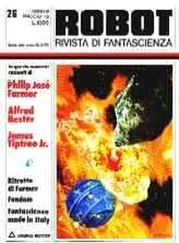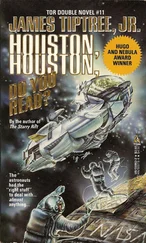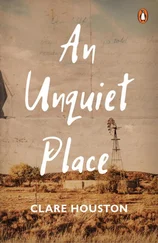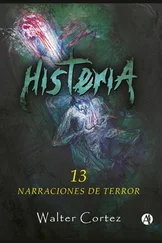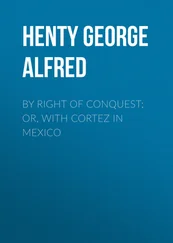Sarah Cortez - Houston Noir
Здесь есть возможность читать онлайн «Sarah Cortez - Houston Noir» весь текст электронной книги совершенно бесплатно (целиком полную версию без сокращений). В некоторых случаях можно слушать аудио, скачать через торрент в формате fb2 и присутствует краткое содержание. Город: New York, Год выпуска: 2019, ISBN: 2019, Издательство: Akashic Books, Жанр: Детектив, на английском языке. Описание произведения, (предисловие) а так же отзывы посетителей доступны на портале библиотеки ЛибКат.
- Название:Houston Noir
- Автор:
- Издательство:Akashic Books
- Жанр:
- Год:2019
- Город:New York
- ISBN:978-1-61775-706-8
- Рейтинг книги:3 / 5. Голосов: 1
-
Избранное:Добавить в избранное
- Отзывы:
-
Ваша оценка:
- 60
- 1
- 2
- 3
- 4
- 5
Houston Noir: краткое содержание, описание и аннотация
Предлагаем к чтению аннотацию, описание, краткое содержание или предисловие (зависит от того, что написал сам автор книги «Houston Noir»). Если вы не нашли необходимую информацию о книге — напишите в комментариях, мы постараемся отыскать её.
Houston Noir — читать онлайн бесплатно полную книгу (весь текст) целиком
Ниже представлен текст книги, разбитый по страницам. Система сохранения места последней прочитанной страницы, позволяет с удобством читать онлайн бесплатно книгу «Houston Noir», без необходимости каждый раз заново искать на чём Вы остановились. Поставьте закладку, и сможете в любой момент перейти на страницу, на которой закончили чтение.
Интервал:
Закладка:
David interrupted before I could respond, his voice sharp: “Why’re you getting involved? We’re increasing neighborhood patrolling, so you’ll see more men walking around at night.”
“We go to Stephanie’s Ice House afterward,” Juan added. “Join us sometime. When you take time off from visiting families.” His voice was almost a snarl.
“We were, um, wondering,” Mrs. Alfaro pushed up her glasses again, “who’s the gentleman that visits you. One of your relatives?”
Before I could respond, my telephone vibrated. I stepped inside.
Luis Hernandez was on the line. “Can you meet me at a bar next week? I need to talk. I can’t live here anymore, without my wife... ”
When I got off the phone, Mrs. Alfaro and her team were still on the steps. Her voice pitched higher: “Stop trying to fix things, okay? The cops will solve these murders. Just keep your house locked and stop spreading stories — people will be afraid to come here!”
I ushered them to the street, slammed my door, and dropped onto my sofa. Unhooking my bra, I pulled it off through the sleeve of my shirt. Just then, another knock sounded, this time at the back door.
Sanjay stood outside, satchel flung over his shoulder. I invited him in and twisted open two beer bottles. Sanjay’s eyes strayed from the drinks to my unbuttoned shirt and bra-free breasts.
One eyebrow raised, I said, “Everything okay, Dr. Watson? Want to tell me on the rug?” Pressing close to him, I continued, “I’ve had many visitors today. And now Luis is creeping me out — he keeps calling me for help... ”
Sanjay tilted his head. “I want to hear more, but first, read this!” He held out his phone, which displayed a message from the university’s Indian student association.
I skimmed and absorbed that the body of an undergraduate Indian student, Nadia Masood, had been found in a freight train boxcar near the university. She had been strangled with her scarf, and her face was punched up. Nadia had been living in southwest Houston with extended family, and her parents were on their way from Ahmedabad, India, to collect her body.
Twisting away from Sanjay, I headed to my bedroom, reappearing in my uniform of form-fitting T-shirt, hoodie, and jeans.
“Wait! I thought we had other plans.” Sanjay followed me to his car.
As we approached campus, we saw six police cars with flashing lights parked alongside the railway line. Orange cones closed off one lane, and yellow emergency tape wound around the train. Sanjay dropped me off next to the railroad track and I walked toward the train, melding into the crowd of students.
Past the graffiti-covered railcars, I glimpsed an older female officer with silver hair shaved to her skull. I recognized her as HPD’s homicide supervisor, Henrietta Jones. Her photo had been shared in the neighborhood association newsletter as the officer in charge of the murders.
I attempted to approach her, but a police officer stepped in front of me.
“Could I talk to her?” I gestured toward Ms. Jones.
“Do you have information?” The officer’s voice was terse.
“Questions.”
“Call the station for an appointment.” The officer handed me a business card and turned to speak to a student who had tears trickling down her cheeks.
My night was haunted by dreams of an army of raincoat-clad men and women, marching along the railroad track, stepping in and out of boxcars. I woke up tired, no closer to answers than I had been when I fell asleep.
Two days later, Sanjay and I drove to southwest Houston. We knocked on a dark-brown door, and a tall woman named Aliya answered. She led us to her living room, dark with burgundy curtains drawn across the windows. Incense smoke made my eyes water. A couple, Rana and Ahmed Masood, sat on a cream-colored sofa, each clutching a mug of tea.
Their daughter Nadia had not lived at the university. Instead, she stayed with Aliya, her mother’s cousin. Each morning, Aliya dropped Nadia downtown, where she caught the Metro Rail to campus.
“She didn’t have many friends,” explained Aliya. “Being a Muslim from India, she didn’t fit in with the other Indians or Pakistanis. So she studied. She was doing well — she was searching for jobs and looking to change her visa status. She might even have met someone... Sometimes she came back late. She was a quiet girl and never told me who was giving her rides.”
Rana Masood adjusted her dupatta scarf and dabbed her tears. “We didn’t want her to go to America. Everyone warned us. But she wanted to study computer science. She got a scholarship from our community association, and she got a visa.”
Ahmed Masood hunched his shoulders. Sweat broke out on his forehead and his lips trembled. “Our community raised money for our tickets. We just want to bury our daughter and return home. But the police won’t release her body. The time to bury her in accordance with Muslim practice has slipped away. She remains in the morgue... ”
Rana Masood tugged my hand. Her palm was sweaty. “I don’t trust the police here. But I found Nadia’s diary.” Reaching into her purse, she drew out a notebook. “She didn’t write much.”
A few pages were filled with handwriting belonging to a person who spent more time on a machine than with a pen. I scanned the text, gleaning that Nadia had met a man who sometimes drove her home from campus. He takes me to dinner in a hotel — some neighborhood called the Galleria. We hold hands. He listens to me and understands.
I flicked to the last page: I promised him I wouldn’t write more, but one day I’ll share the story of the man I love .
Thirty minutes before I was to meet Luis at the bar, my phone rang.
“Can you meet me by the cemetery instead?” Luis stammered. “There’s graffiti on my wife’s grave.” He said the cemetery closed at sunset, and an iron bar blocked the entrance. “You can park across the street and enter from the side. I’ll wait for you.”
Making sure my phone was charged, I drove up Lawndale. Darkness had fallen, and there was no moon. As I pulled up across from the cemetery, I saw Luis waiting for me. I parked my car and crossed the street to join him.
Luis and I walked across wet grass to the curling cemetery road, a labyrinth with which he seemed familiar. I had been to Forest Park Cemetery just twice: once to attend Alicia’s funeral, and the second time for the smaller service for Maria Lee, who was buried in the mortuary since her mother could not afford a grave. Those burials were my first encounter with any US cemeteries. Forest Park’s grassy landscape stretched over hundreds of acres — the opposite of what I knew in Karachi, where bodies were buried on top of each other.
“Thanks for meeting me here,” Luis mumbled. “I don’t trust cops.” His eyes were teary and his hair disheveled.
I glanced around at the winding road, lined by pink and white azaleas. Far away, police sirens competed with the hum of the nearby freeway. Occasionally, a roar erupted from airplanes landing or taking off at Hobby Airport.
Finally, Luis stopped in front of a grave. The tombstone had been knocked flat.
I aimed my telephone’s flashlight at the flat stone. “This is not your wife’s grave! Who’s Joanna Martinez?” I turned to face him.
Luis’s face was shadowed. His eyebrows seemed thicker and his arms were long as he lunged for me. “Don’t move,” he whispered.
Though Luis’s frame was not much larger than mine, his arms felt like an iron belt. I clamped my teeth on his shoulder. He winced, loosening his hold. Squirming away, I folded one leg to knee his groin, but he thrust me onto the wet grass. I landed on my back, feeling scratchy stalks push against my shirt and jeans. The scent of jasmine from a nearby tomb clung to my nostrils, contrasting with the danger.
Читать дальшеИнтервал:
Закладка:
Похожие книги на «Houston Noir»
Представляем Вашему вниманию похожие книги на «Houston Noir» списком для выбора. Мы отобрали схожую по названию и смыслу литературу в надежде предоставить читателям больше вариантов отыскать новые, интересные, ещё непрочитанные произведения.
Обсуждение, отзывы о книге «Houston Noir» и просто собственные мнения читателей. Оставьте ваши комментарии, напишите, что Вы думаете о произведении, его смысле или главных героях. Укажите что конкретно понравилось, а что нет, и почему Вы так считаете.
